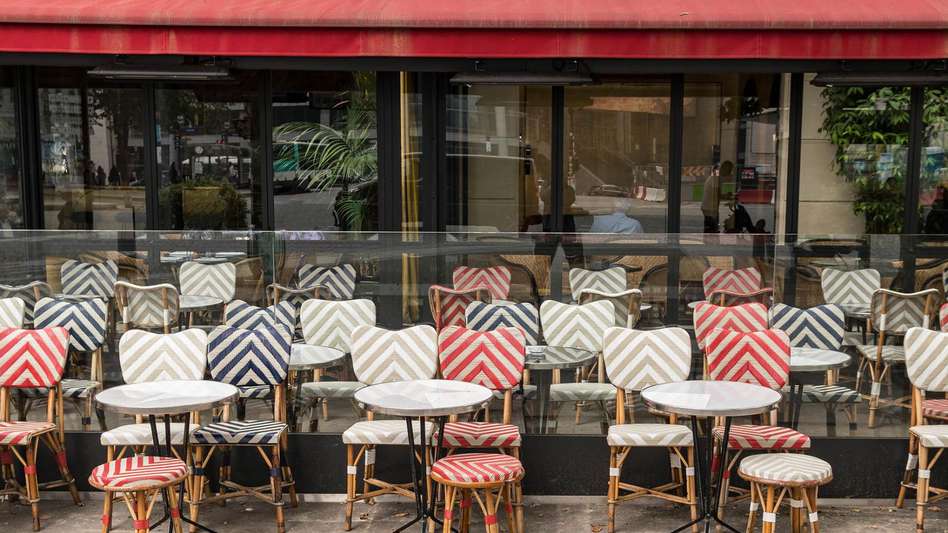How to start a business in France

It is possible to start a simple business quickly and cheaply in France. Larger and more complex enterprises may require expert advice to ensure that they are registered correctly and comply with the relevant regulations.
While many of the things you’d do when setting up a business are the same in France as in the UK, for example preparing a business plan and researching your market and competitors, it is often the company structures and business regulations in France that can deter people from setting up their own business there. It is true that France does appear to have a baffling number of processes, but it has in fact been made easier for business start-ups in recent years and many aspects have been simplified.
Here we take a look at the steps to consider:
- French legal business structures
- Registering a business in France
- French business classification
- French business insurance
- Finding business premises in France
- French business banking and accounting
- Financial assistance for stating a business in France
- Paying tax in France
- Employing staff in France
- Marketing your business
Call our specialist solicitors on 0808 231 1320
French legal business structures
There are two types of legal business structure in France:
- Sole trader (entreprise individuelle or EI)
If the business you are hoping to set up is small and you do not need any significant funding, it is likely that an entreprise individuelle (EI) will work for you. This is what we would call a sole trader business in the UK. In addition, you can set it up using the business tax status of micro-entrepreneur, which protects your family home from business creditors.
- A company (société) such as EURL and SARL
However, if your business requires a loan, is likely to make a loss in the first years, or you are running it with non-family members, then you would be better advised to set up a limited liability company. The most common types are the entreprise unipersonnelle à responsibilité limitée and the société à responsibilité limitée, which are abbreviated to EURL and SARL.
These different structures have a variety of tax implications, i.e. they determine whether you are taxed through your business or your personal income tax. Additionally, there are other types of company for more complex structures, which you would be advised to discuss with an expert in French company law.
It is worth noting that if you are a national of the European Economic Area (EEA), you do not need a residence or work permit to start a business in France.
Registering a business in France
All new businesses in France need to be registered with the authorities, and this is done at a business registration centre known as a centre des formalités des entreprises (CFE). This does the job of notifying all the relevant statutory bodies who need to be aware of your business, such as tax and social security organisations.
You can do this yourself very cheaply if your business is a simple entreprise individuelle, but for more complex business structures, while it is still possible to do it yourself, you are probably better advised to use the services of an avocat (a French lawyer) or an accountant.
Confirmation of your registration usually takes about two weeks, after which you will receive a business identification document, which is called an extrait K for a sole trader or an extrait Kbis for companies. You will also be given a 14-digit business registration number known as your SIRET (the first nine numbers refer to your identity on the national business register, while the last five identify the area in France in which your business is located).
French business classification
There is also a system of classification for all businesses in France that identifies whether your business is a trade, a profession or commercial, or whether you are working as an agent, in agriculture or in the artistic sector. You will need to decide which of these your business falls into when you register the company – if your business falls into two categories, then you should register your principal activity. Your local French chamber of commerce should be able to help you decide on the appropriate category.
French business insurance
Consider taking expert advice regarding your public liability and professional indemnity insurance. While it is not obligatory for all business activities, your business classification will identify what cover is required and premiums can be high.
Finding business premises in France
It is possible to run your business from home in France without any change of use from the planning authorities as long as the property continues to be your home. You may have issues with neighbours, however, and if you are receiving clients or goods to your home address you should apply to your local mairie/préfecture for consent. You should also check your lease if you live in a block of flats, as there may be a clause there which states that commercial activities cannot be carried out on the premises.
Buying business premises in France is fairly straightforward, although you should consider using a legal structure called a société civile immobilière (SCI) as it can offer some financial advantages.
If you buy an existing business and premises, you will be required by French law to respect existing employment contracts. Also remember that France has regulatory requirements for certain types of business, e.g. health and safety if you are considering opening a food-related business.
French business banking and accounting
If you have a separate business in France, you are required to open a business bank account in the same name as the business. You may receive an introduction to a bank when you register your company and it may be necessary to visit the bank in person and to take a copy of your business plan with you. There is likely to be a minimum deposit required and a quarterly charge for your business account.
If you have chosen to trade as an entreprise individuelle, the authorities are usually happy for you to manage the book-keeping yourself, and the same is true if you opt for the micro-entrepreneur tax regime – as long as you keep a book of expenditure and receipts and have this available for possible short-notice inspection.
Although you’ll most likely be willing to do the book-keeping for your new business yourself, it is worth (and this could save you money in the long run) appointing a professional French accountant with commercial expertise, otherwise known as an expert-comptable. They are legally responsible for keeping you informed of changes to the tax laws and for keeping your accounts in good order.
Financial assistance for starting a business in France
A good expert-comptable will also be able to advise you on the best way to access financial assistance for your new start-up. There are many schemes available, and it is worth taking the time to research the one that would be best suited to your business and situation. They will often include tax and social security savings, as well as offering grants or low interest rate loans. The government offers subsidised employment contracts to certain business sectors if you are able to offer jobs to the unemployed, the young or the elderly.
Paying tax in France
How you pay tax will be dependent upon the structure you have chosen for your business, and will either fall under the personal income tax system called impôt sur le revenu or the company tax system known as impôt sur les sociétés.
If you are a sole trader, then you are automatically taxed under the personal income tax system. A limited company in sole ownership can choose to be taxed through either system, while a limited company in joint ownership should be taxed under the company tax system.
Whichever way you pay your tax, you will pay your social security contributions under the régime des travailleurs non salariés (TNS).
Employing staff for your new business
You can find staff via recruitment agencies, newspapers and online much as you would in the UK, or you can use the pôle emploi, which is the national job centre. However, employment law is complicated in France and it is a good idea to contact a specialist French lawyer who will advise you as to whether you have the correct business structure to employ staff. They will also help you to declare your new member of staff to the relevant authority, as well as ensuring that you comply with all other conditions of employment.
Marketing your business
If you are marketing your business in France, i.e. if you are not relying solely on clients from the UK, you must remember to be sensitive to French traditions and protocols. As in the UK, get to know your market and identify appropriate advertising channels. Write all your marketing communications in French and do not presume that you can simply translate any existing materials, which will target the English market, into French.
If you are about to start a business in France and want help at any stage of the process, our French-speaking legal team can give you the straightforward advice you need. The team is led by our French-qualified avocat Herve Blatry, based in our Bishop’s Stortford office, who has extensive experience of conducting business in France and will be able to offer specialised advice and secure you the best results.
Call our French legal team on 01279 322 515 for an initial obligation-free chat, or fill out our enquiry form and we will get in touch.
Tees is here to help
We have many specialist lawyers who are based in:
Cambridgeshire: Cambridge
Essex: Brentwood, Chelmsford, and Saffron Walden
Hertfordshire: Bishop's Stortford and Royston
But we can help you wherever you are in England and Wales.
Chat to the Author, Hervé Blatry
Avocat, French law, Bishop's Stortford office
Meet Hervé
- Areas of expertise
- Testimonials
Mrs Isabel Corbett
Preston
I just wanted to thank you for all your help in the purchase of our apartment. You and your team have made the process much more straight forward and knowing we had your knowledge and expertise behind us, has made our property purchase journey in France so much less stressful.
Peter Bottery
Saffron Walden
Before our discussions, I felt a bit like someone who had been parachuted into the middle of a minefield; after our discussions, I feel that at least I have been given a mine detector and a map!
